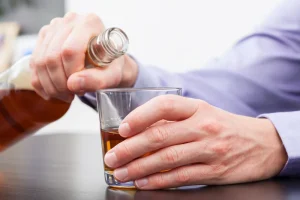
Another is reorienting the brain circuitry of desire—finding or rediscovering a passion or pursuit that gives meaning to life and furnishes personal goals that are capable of supplanting the desire for drugs. A third is establishing and maintaining a strong sense of connection to others; support helps people stay on track, and it helps retune the neural circuits of desire and goal-pursuit. Learning new coping skills for dealing with unpleasant feelings is another pillar of recovery. Through the lens of TTM and MI, the recovery process emerges as a dynamic and fluid evolution. These models recognize the cyclical nature of change, emphasizing the potential for relapses and reinforcing the importance of ongoing support.
History of the 12 Steps of Recovery.

The journey of alcohol rehabilitation is comprised of several stages, each serving a unique purpose in the recovery process. Recovery from addiction is not a linear process, and increasingly, relapse is seen as an opportunity for learning. Such triggers are especially potent in the first 90 days of recovery, when most relapse occurs, before the brain has had time to relearn to respond to other rewards and rewire itself to do so.
- During the detoxification stage, medical professionals closely monitor individuals to ensure their safety and to manage any complications that may arise during withdrawal.
- We also suggest developing new nighttime rituals that calm your mind and body before bed.
- Therapy combined with an AUD program tends to lead to a high recovery success rate.
Stage 2: Early Abstinence

Yet, alcohol is highly addictive and can cause severe health problems. With so many effects on the body, the usual first step in treating alcoholism stages of alcoholic recovery is detox—or getting alcohol out of your system. Depending on the severity of the alcohol use disorder, this stage can be mildly annoying or severe.
Month 2-3: Positive Effects Are A Sign To Keep Going
This condition is serious and may lead to symptoms such as high blood pressure, tremors, and seizures. The brain also begins to repair some of the damage and shrinkage you may have experienced while drinking. One study showed that after 6 weeks of abstinence from alcohol, brain volume increases by an average of 2%. If you have decided that it is time to stop or reduce your alcohol consumption, knowing what happens to your body when you stop drinking can give you a better idea of what to expect. Alcohol misuse and addiction can have harrowing and hazardous side effects at every phase.
Stage Six: Transcendence
It stands to reason that alcohol recovery is also a gradual process with no set timeline. This cyclical nature isn’t a sign of failure – it’s a normal part of the change process. Each cycle can bring new insights, stronger coping skills, and increased resilience. Addressing potential obstacles and triggers is also a key part of preparation. This involves identifying situations, emotions, or events that might tempt you to return to addictive behaviors. Once identified, you can develop strategies to cope with these triggers.
Mindfulness training, a common component of cognitive behavioral therapy, can help people ride out their cravings without acting on them. Because recovery involves growth, families need to learn and practice new patterns of interaction. Addiction doesn’t just affect individuals; addiction is a family affliction. The uncertainty of a person’s behavior tests family bonds, creates considerable shame, and give rise to great amounts of anxiety. Because families are interactive systems, everyone is affected, usually in ways they are not even aware of.
- During this stage of alcohol detox, withdrawal symptoms become more severe.
- Developing coping mechanisms is vital for navigating life’s ups and downs without turning to alcohol.
- In treatment settings, clinical diagnoses and health problems often focus on behavioral changes as a fundamental element for health prevention and maintenance.
- Both the World Health Organization (WHO) and the Canadian Centre on Substance Use and Addiction have determined that there is not safe amount of alcohol.
In the next section, we will explore the importance of embracing a sober lifestyle and the ongoing support required to continue the journey of recovery. • Meaning and purpose—finding and developing a new sense of purpose, which can come from many sources. It may include rediscovering a work or social role, finding new recreational interests, or developing a new sense of spiritual connection. The important feature is that the interest avert boredom and provide rewards that outweigh the desire to return to substance use. To find another treatment program, browse the top-rated addiction treatment facilities in each state by visiting our homepage, or by viewing the SAMHSA Treatment Services Locator. The helpline at AddictionResource.net is available 24/7 to discuss the treatment needs of yourself or a loved one.

How to get insurance to pay for inpatient rehab?
But therapy sessions and group and one-on-one meetings all work together. Twelve-Step meetings are considered the „fellowship“ part of the AA mutual support groups, where people come together and share their experiences. They are the directions meant to provide members a path to lasting sobriety and a substance-free lifestyle. By Michelle PugleMichelle Pugle, MA is a freelance writer and reporter focusing on mental health and chronic conditions. As seen in Verywell, Healthline, Psych Central, Everyday Health, and Health.com, among others.
Moving Forward in Recovery
It also provides an overview of the alcohol withdrawal timeline process and when to discuss your drinking with your healthcare provider. They can recommend treatment options that can help, including therapy and medications. Psychotherapy options such as cognitive-behavior https://ecosoberhouse.com/ therapy (CBT) and motivation enhancement therapy (MET) can help change unhelpful thinking patterns, teach valuable coping skills, and improve the motivation to quit. When you first stop drinking, your body will begin to detoxify itself.
